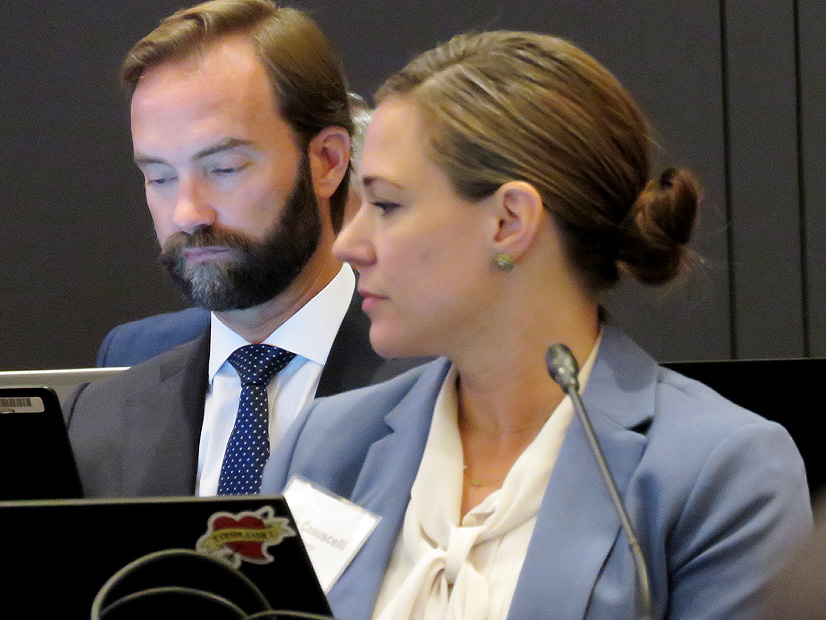At its first in-person meeting since the beginning of the COVID-19 pandemic, NERC’s Standards Committee on Wednesday approved a standard authorization request (SAR) that would introduce electromagnetic transient (EMT) modeling to three of the organization’s reliability standards.
Most of the committee met at the Denver offices of Xcel Energy, with some members joining via conference call. Chair Amy Casuscelli — Xcel’s manager of reliability assurance and risk management — said she was glad to finally be hosting members again. She noted that not only were attendees likely to be “a little bit rusty” on meeting practices after more than two years of exclusive conference calls, but “14 of our 22-member roster are new since” the committee’s last face-to-face meeting and might have never seen the other members in person at all, and thanked them for contributing.
“We know that traveling is expensive for us and our companies. It’s time away from our day job, time away from our families, and we’re all facing tighter budgets,” Casuscelli said. “You guys are all here today because you see value in these interactions and [so do] your companies … so I would challenge you today to think through how we can maximize our time.”
Action Items Pass Without Exception
The EMT modeling SAR was proposed by NERC’s Inverter-based Resources Performance Subcommittee (IRPS) and endorsed by the Reliability and Security Technical Committee at its meeting last month. (See “Procedural Confusion on EMT SAR,” NERC RSTC Briefs: June 8-9, 2022.) It would require transmission planners (TPs) and planning coordinators (PCs) to conduct EMT studies, and apply to:
The IRPS proposed the SAR in light of the bulk power system’s “rapid transformation towards high penetrations of inverter-based resources”; the subcommittee noted that many TPs and PCs “are concerned about the lack of accurate modeling data” to help plan the introduction of these resources and suggested that putting the modeling requirement in the standards would ensure they apply equally to all stakeholders.
Marty Hostler, reliability compliance manager for the Northern California Power Agency, expressed misgivings about the SAR, warning that it was unrealistic to expect TPs and PCs to be the only ones affected by the new requirements when other stakeholders, including generator owners, might have to be involved in the interconnection process as well.
“A lot of times these EMT models aren’t available, and they’re going to have to hire extra staff that has training on how to do that. So it’s not just going to be, in my view, the planning coordinators and transmission planners that are going to have to do this,” Hostler said. “It’s going to have to be all the people [having] to do system impact studies on their own facilities.”
Despite his concern, Hostler did not vote against the measure. The SAR passed unanimously, with no abstentions.
Frequency Response
The committee also approved without objection the posting of the proposed reliability standard BAL-003-3 (Frequency response and frequency bias setting) for a 45-day formal comment and ballot period after its submission by the standard development team for Project 2017-01 (Modifications to BAL-003). BAL-003-3 is intended to “make the [Interconnection Frequency Response Obligation] calculations and associated allocations better reflect current conditions and better consider characteristics affecting frequency response.”
The Standards Committee’s next in-person meeting is scheduled to be held Sept. 21 at ERCOT’s offices in Austin, Texas. The August meeting will be held via conference call, as will the October and November meetings. The committee will gather in person for the final meeting of the year in Atlanta on Dec. 13.




